By Prior Beharry
BASDEO PANDAY could be as gracious and charming as ever but in the next take, he was as Machiavellian as The Prince.
He believed that politics has a morality of its own when he described it as a civilized form of war. Evidence of this was replete throughout his political career as he would “sleep with the devil” to get into power to transform the lives of people.
His training in drama both in Trinidad and in London outfitted him with tools for the role he was to play in the politics of Trinidad and Tobago. Working in the cane fields of St Julien Village in Princes Town, Panday always wanted to get out and believed from an early age that education was the way out of poverty. His brothers Subhas and Raj also attained tertiary-level education.
His sister Cynthia Panday-Boodram said initially he wanted to be a teacher. Panday would handle the dhantal for her husband, the legendary Indian classical singer Sam Boodram. Panday also knew how to play the tabla and was also versed in a number of Indian musical instruments.

After being a sugar cane weigher, teaching at the New Grant Presbyterian School, Panday worked as a note taker to Magistrate Noor Hassanali who in 1995 as President of T&T would swear in Panday as prime minister.
Panday went to England and studied law and was admitted to Lincoln’s Inn as a Barrister on November 27, 1962. Previously, in 1960, he would attain a Diploma in Drama from the London School of Drama.
He would later say that he felt he did not properly matriculate for a degree since being admitted to be a barrister meant that he just had to study for an exam, so he went and did a degree in Economics from the University of London in 1965.
Panday was admitted to practice law in T&T on August 5, 1963 and in 1965 was awarded a Commonwealth scholarship to go to the Delhi School of Economics in India to pursue a post-graduate degree in economics and political science. He declined and decided to enter politics in T&T joining the Marxist Workers and Farmers Party that included Stephen Maharaj, CLR James and George Weekes. He lost his deposit in the 1966 elections in the Oropouche seat.
He became a senator in 1972 and a year later was President General of the All Trinidad Sugar and General Workers’ Trade Union.
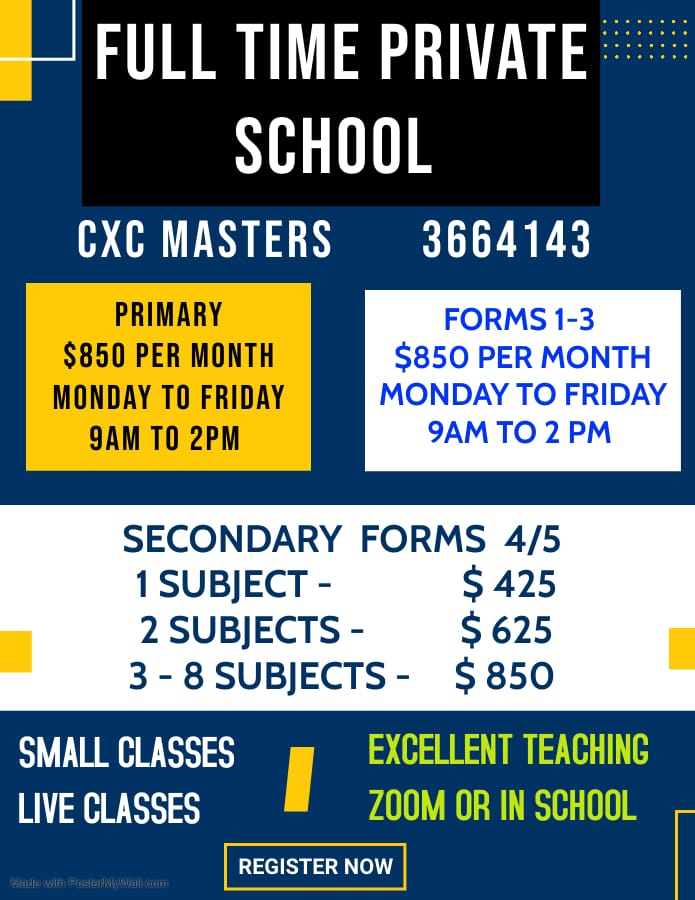
It was as a trade union leader that he first made his mark, using his oratory and acting skills to represent the sugarcane workers. He had under his belt, roles in three British-made feature films – Nine Hours to Rama (1963), Man in the Middle (1964), and The Brigand of Kandahar (1965). Panday had admitted being truant or breaking biche to go and view Westerns while at Presentation College in San Fernando.
His charisma and reputation as a trade unionist allowed him to form the United Labour Front (ULF) that became the official opposition in 1976 with ten seats with Panday winning the newly-created Couva North seat. His penchant for political machinations intensified during this time as a power struggle within the ULF had a game of “musical chairs” for opposition leader among Panday, Raffique Shah, Joe Young and George Weekes.
By the 1980s, Panday was widely known for his oratory skills in and outside the Parliament. During his responses to budget debates, he would use the hot topics of the day to make his point. In 1979, after the mass killings in Guyana a year earlier, Panday would describe the finance minister’s fiscal package as a Jim Jones budget. In 1990, after Iraq invaded Kuwait and the price of oil went up, Panday said the budget was a Saddam Hosein budget.
During his 2003 contribution when murders and kidnappings were an issue, Panday told the speaker that he almost mistakenly referred to then prime minister Patrick Manning as “Crime Minister.”
He would tweak his Parliamentary contributions to get his points across in a very memorable way, his researchers would tell me. When agriculture minister John Rahael oversaw the closing down of Caroni (1975) Limited laying off 9,000 workers, Panday said, “the earth will scorch him.”
A year later, criticising the People’s National Movement Government (PNM) for neglecting central and paying no heed to their flooding woes he attacked minister Christine Sahadeo using Hindu text, not only playing to his base but seeking to educate those who were alien to this culture.
Panday said, “She is like the proverbial Putna, who, with poisonous milk in her breasts offered them to the baby Lord Krishna to kill him while pretending to feed him.”
He added, “Krishna had no mercy in exposing the evil doer for what she was before taking her very life.”
Panday brought into the lexicon of T&T Hindi words dubbing his enemies in most cases Neemakarams or ungratefull.
In his tribute to Panday, Minister of Foreign and CARICOM Affairs Dr Amery Browne said that Panday was the most quotable public figure of T&T.
His political chips were high in the 1980s and after the death of Eric Williams in 1981, seeing chinks in the armour of the PNM, Panday joined with ANR Robinson, Karl Hudson Phillips of the Organisation for National Reconstruction and Lloyd Best of Tapia to form the National Alliance for Reconstruction and sweep the polls 33 to three in 1986.
He graciously agreed to make Robinson leader of the coalition, a man with only two seats in Tobago, and become prime minister. The partnership was not to last very long.
In just over a year, Panday said Robinson refused to appoint Indians on state boards and also ignored the ULF. He was also concerned with Robinson taking the country down the road of the International Monetary Fund (IMF) to enter a period of structural adjustment that put pressure on the working class. Panday was fired as Minister of Foreign Affairs and International Trade while at an official function in Cedros.
Robinson became unpopular and after the attempted coup in 1990, the NAR was a skeleton of its 1986 manifestation. The Panday-faction of the NAR formed Club 88 which eventually turned into the United National Congress (UNC).
By this time, the UNC was the only alternative to the PNM which won the 1991 elections with 21 seats from its previous three – the mash-up of the NAR saw to that. But, it allowed Panday and the ULF to get 13 seats in the Lower House. He was to cement his role as a prime minister-in-waiting, as he consolidated his party.
He fell out with his longtime colleague Couva South MP Kelvin Ramnath who went all over the country saying that Panday was selling out. At one time Ramnath, still a member of the party, said on a platform that if Panday wanted him to go, all he had to do was to “say the word”. Panday went on the hustings and repeated what Ramnath said, telling him: “The word, the word, the word.”
It was the typical Panday style that drew him large crowds at meetings in days without internet and limited radio and one state-owned television station. In the late 1980s during the NAR campaign at Piccadilly in Port of Spain, Panday was in full flight during a speech, a heckler in the crowd kept on interrupting, calling his name. Panday, unable to take it anymore, stopped his speech, looked at the man and said, “Yes, my brother?”
The man shouted, “You old stinking dog!” To which Panday retorted, “That’s why I called you ‘my brother’”. The crowd went wild.
In 1995, Panday’s stocks now rising, was helped by a snap election called by Patrick Manning, the results were PNM 17, UNC 17 and the NAR with the two Tobago seats. Panday joined with Robinson to form government in typical Machiavellian style saying he would sleep with the devil to be able to transform the lives of his people.
He called his government one of “National Unity” and even added to their stocks when two PNM MPs – Vincent Lasse and Rupert Griffith – crossed the floor.
Panday’s time as head of government saw the implementation of many positive initiatives including the Judicial Review Act, the Freedom of Information Act, the Integrity in Public Life Act, Equal Opportunity Legislation, a minimum wage for all categories of workers, opening up the foreign-used car industry, abolishing Common Entrance and finding a place for every child in a secondary school.
As the first prime minister of Indian descent of T&T, Panday was under pressure from some of his supporters who said it was “we time now.” Panday was at pains to prove that he was a prime minister for all of T&T and knew he had to treat all sectors of the country with equality even though he knew, no matter what he did, some wouldn’t vote for him.
When the UNC assumed office there were comments by those who hated him that the UNC was going to cancel the national festival of Carnival, that Panday was going to dig up the Brian Lara Promenade and put in a sugar cane scale. Others quipped that when the UNC won elections there was not a duck to be found in central and south as all were curried.
His supporters lauded, along with his attorney general Ramesh Lawrence Maharaj, that the state was able to execute ten convicted murderers in 1999, take the murder toll down to under 100 and run the country when oil was US$9 a barrel.
When he had by-pass surgery in 1998, he coined the phrase: “If you see me and a lion fighting, feel sorry for the lion,” to tell his political opponents he was still a formidable enemy.
He had said that no one would attack his government and remain unscathed and called for the resignation of the editor-in-chief of the Guardian Jones Madeira after the paper published a headline – Chutney Rising. He did not speak to Guardian reporters, asking them if Madeira was still employed with the media house. The Managing Director of the Guardian Media Group Alwyn Chow was “constructively dismissed” and when Madeira was fired there was a walkout of senior editors at the Guardian.
Panday said the media were publishing “lies, half-truths and innuendoes” and during his term also shouted “that’s insulting” at journalist Natalie Williams of TV 6 for asking him if he had favoured a friend for a contract.
Allegations of corruption dogged his office, with people citing his close relationship with Finance Minister Brian Kuei Tung and businessmen Steve Ferguson and Ishwar Galbaransingh. Ish, Brian and Steve were on Panday’s opponents’ lips.

The UNC government had begun the construction of a new Piarco International Airport. This project was plagued with allegations of corruption with a number of charges subsequently arising out of it.
Despite this, Panday and the UNC won the 2000 general elections, 19 seats to the PNM’s 17. It’s to Panday’s credit that after five years in office and all that was swirling around him, he led a party that single-handedly beat the PNM for the first time in any general elections in T&T.
But, his “partnership” with Robinson would come back to bite him. Panday had agreed to have Robinson resign his Tobago East seat and then appointed him as President of T&T in 1997.
In 2000, Robinson as President refused to swear-in seven candidates who lost the general elections. He left the ceremony prematurely and with the seven in limbo. Robinson spoke about “a creeping dictatorship”.
More turbulence was ahead for Panday, when three of his MPs, including his attorney general Maharaj, Trevor Sudama and Ralph Maraj withdrew their support from the UNC in Parliament citing allegations of corruption. Panday now with a minority government in the Westminster system called elections in just about one year after becoming prime minister for the second time.
During that time, he slammed the three defectors – referring to them as the three Rs – Ramesh, Ralph and Romeo. Sudama’s fiancée was a lady many years his junior.
The 2001 general elections ended in deadlock – 18-18. A speaker of the House of Representatives could not have been elected so that MPs could have been sworn in.
On Christmas Eve, President Robinson appointed Patrick Manning as prime minister since the occasion had arisen under the Constitution after a general election for the president to appoint a PM.
This was done despite, Panday being the incumbent and the UNC attaining the popular vote. Robinson had cited “moral and spiritual values” under the Constitution in arriving at his decision.
This was the last time Panday held government office.
Panday had played a role in making Robinson both prime minister and president and in the end, Robinson was dubbed the quintessential Neemakaram by UNC supporters.
In 2006, Panday was sentenced to two years hard labour by Chief Magistrate Sherman McNicolls for failing to declare a London bank account under the Integrity in Public Life Act.
I was in court and one could have heard a pin drop when the sentence was delivered. McNicolls gave his ruling extempore after hearing evidence from Panday and submissions that same day. He did not reserve his ruling.
Panday spent one week at the Golden Grove jail, after refusing to take bail. His supporters held a vigil every night for him in the compound that now houses Bhagawangsingh Hardware in Piarco. Panday emerged from the prison walls with a beard. The Court of Appeal later quashed his conviction.
And in June last year, the Judicial Committee of the Privy Council quashed another conviction of the late McNicolls against businessmen for allegations of corruption from the construction of the airport. The law lords ruled that McNicolls acted with “apparent political bias” in the case quashing the indictments after almost 22-years before the courts.
Panday was to be charged again with accepting a bribe from his former minister Carlos John and Galbaransingh out of the airport construction and refused again to accept bail. When he had exited the court, he told the media: “Did you not expect this?”
Panday struggled during this period to hold on to the leadership of the UNC, on one occasion becoming the party’s chairman with Winston Dookeran as its political leader in 2005. That arrangement didn’t last very long as the UNC was too much entrenched with Panday. Dookeran left and then formed the Congress of the People in September 2006.
Panday would quip, playing to his base again that the COP was formed during pitar pak a period when Hindus pay homage to their ancestors. Panday said, “That party dead already.”
In the first past-the-post system, the COP did not win a single seat in the 2007 general elections. The PNM won with 26 seats and the UNC formed the opposition with the other 15.
Panday’s leadership troubles continued with PNM leader and prime minister Patrick Manning stating that once Panday was UNC leader he would always be prime minister.
His appointment as opposition leader was revoked by President George Maxwell Richards during this period and Kamla Persad-Bissessar was appointed in his place.
He refused to relinquish the leadership of the UNC. Jack Warner and Ramesh Maharaj went all over the country calling for UNC internal elections. Panday finally gave in and on January 24, 2010, Persad-Bissessar beat the founder of the UNC gaining over 13,000 votes – ten times more than Panday.
Panday left active politics, still trying to help the downtrodden and empower anyone by opening an office in a space close to the UNC headquarters at Rienzi Complex in Couva.
He continued his calls for constitutional reform and proportional representation. Way back in 2003, during his response to the Budget, he called for an executive president to be appointed by the people.
Panday said, “During my political life, I had not political enemies, I only had political opponents.”
In a plural society, with all its racial and religious tensions, Panday would always say that he was born into a Hindu home, went to a Presbyterian primary school and a Roman Catholic secondary school and was married to a Muslim woman, his first wife who died. He said he dabbled in Buddism.
He said he wanted a place where everyone no matter their background could feel safe and part of the society.
Panday speaking at a Hindu function at Palmiste Park before he passed away on January 1, 2024, said the best religion was the one that makes you a better person. “If your religion cannot make you a better person, then what use is it.”
Panday said when he left politics “or politics left me” he began to look at his life and was only sure of two things that he was born and that he had to die.
He said he tried to find the meaning of life from the time you were born to when you die.
Panday said that the Hindus said that unhappiness was always the result of unfulfilled desires.
“So that if you do not want to be unhappy, you should cultivate a system where you can control your desires.
“But it also went on to say that the fact that you have conquered unhappiness does not necessarily mean that you are happy. You are not happy but you are not unhappy.”
He added that he came to the conclusion that the only purpose in life is to be happy.
Panday said that happiness was not wealth or power since millionaires have committed suicide.
He said happiness had to be inside one’s heart.
Panday said, “How can I be happy if I hate you. Whole day and whole night I thinking about how to break your foot and to damage you and so on and spite you and do something to hurt you…”
He said, “The only way you can be happy to fulfil your life is you have to get rid of hatred, spite, malice, envy, greed, the need for revenge and all these negative tendencies…”
Panday said for him to be happy he conceptualised in his mind to convert all his enemies in his mind.
He added, “By converting all my enemies into friends, I no longer had any hatred in my heart.”
Panday said he did that in his heart thinking about all his political enemies and made them into friends, but he was finding a hard time with Robinson.
He said, “His name was ANR Robinson… The reason I hated Robinson was that Robinson destroyed a nation that was on its way to progress. When there was 18-18, we had more votes than the PNM, but he made Manning the prime minister.
“Because of that he ruined the progress that the nation was making and I hated him. And I began to think what can I think off, what can I do, what thought can I have to love Robinson? That not easy eh.”
Panday said one day the solution hit him in the eyes.
He said, “When there was this 18-18 thing and he made Manning prime minister, he imposed upon a sick man, the heavy burden of state; and therefore he was responsible for Manning’s death.”
Panday said, “Now if he had appointed me as prime minister he would have imposed upon me the heavy burned of state and I might have died.”
He added, “Thank you Robinson for saving my life. I love you.”
Prior Beharry, BA, M.Sc is the Editor-in-Chief of AZP News and has been covering politics and Parliament in Trinidad and Tobago since 1997. He has interviewed Basdeo Panday on numerous occasions and covered many events with him over the years

AZP News is an independent news organisation that is not affiliated with any big business and depends solely on advertising to pay our bills. Therefore, we are asking for the generosity of our readers to help us with small donations of any amount, but we will be happy with US$1, US$5 or US$10. Click Here to Donate
See related stories below:
![]()


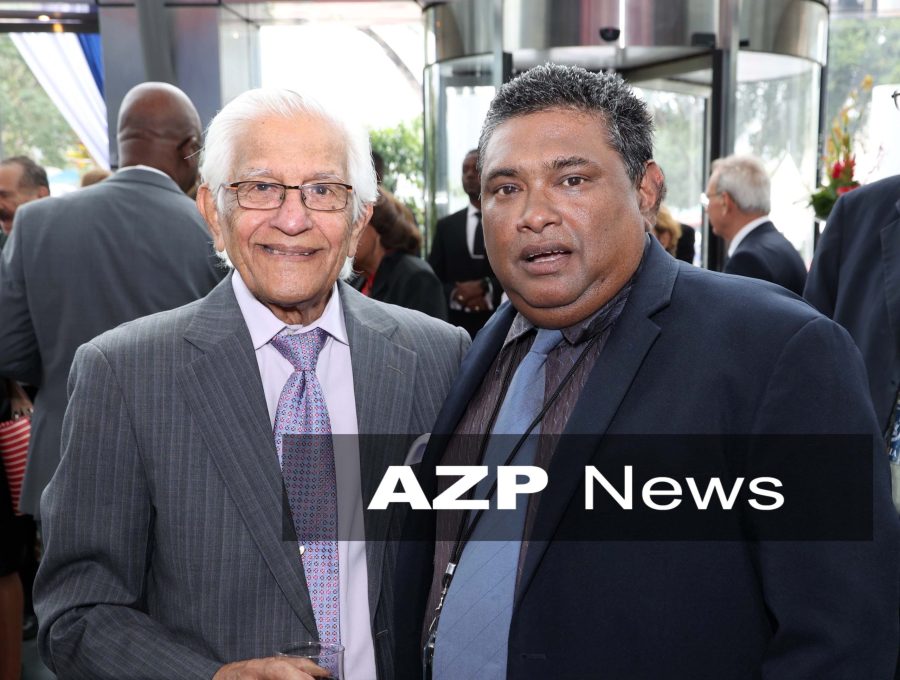
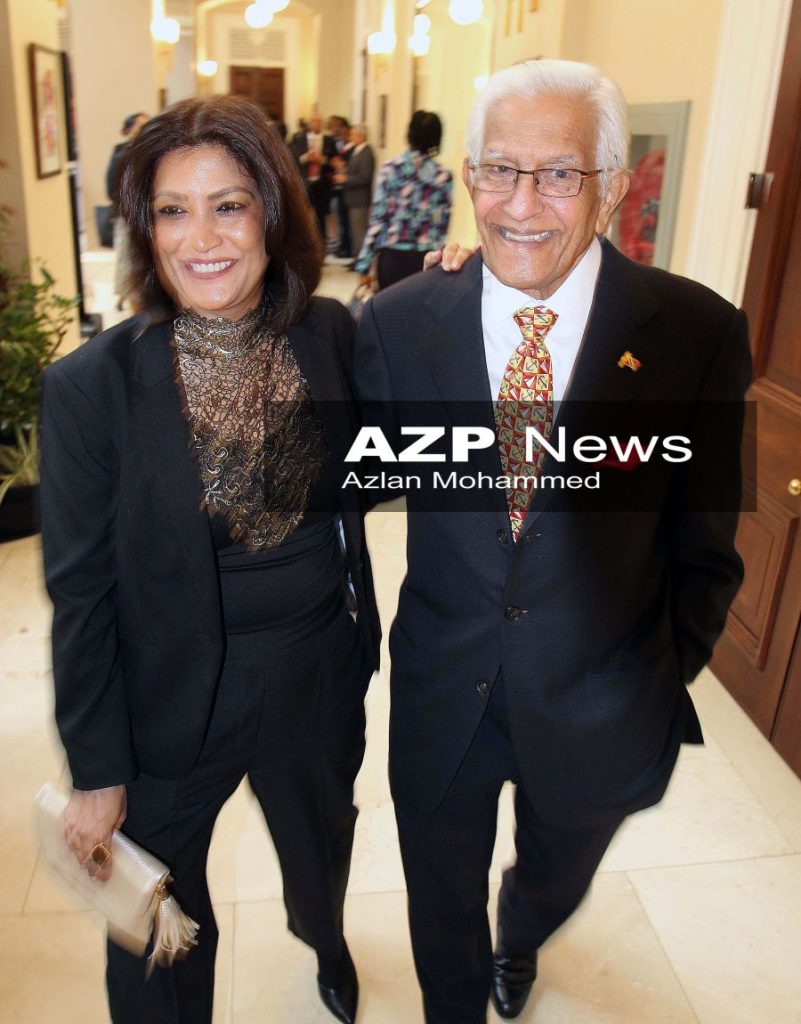
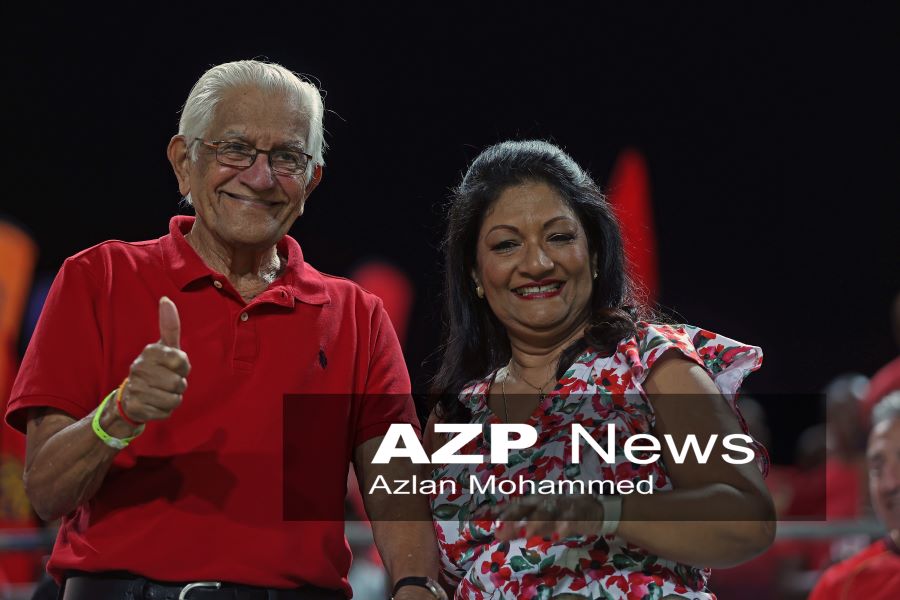
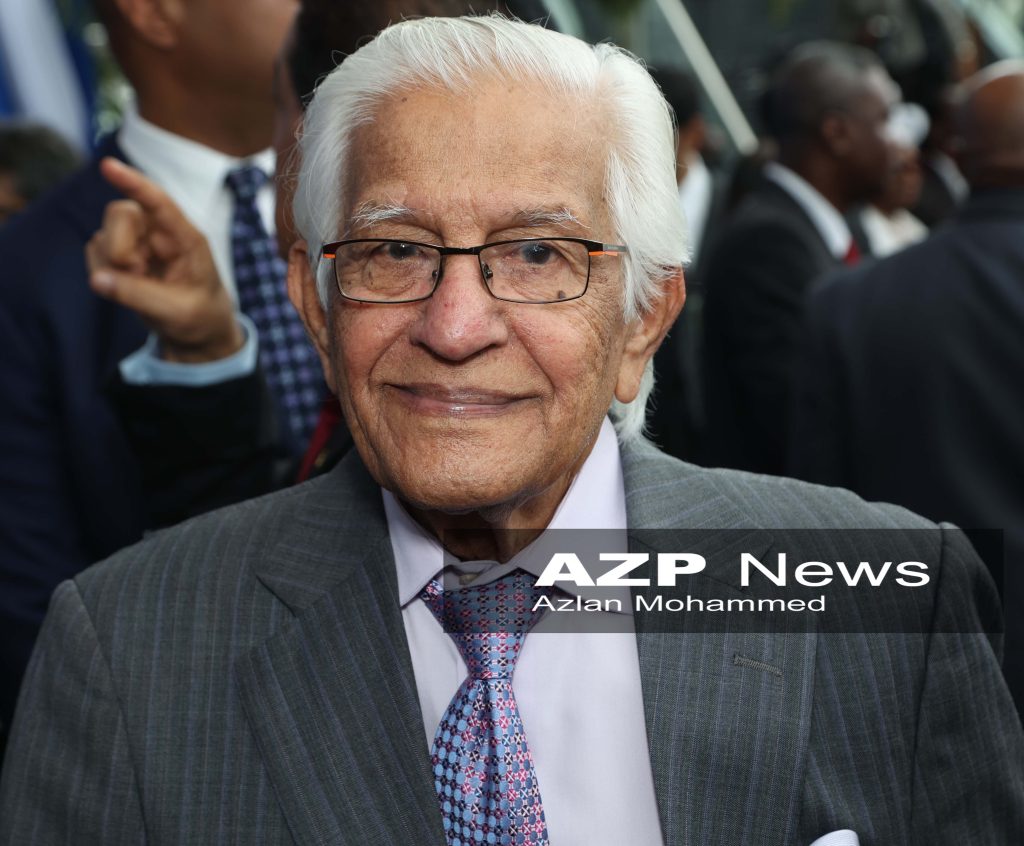

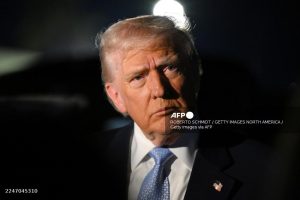

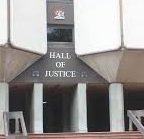
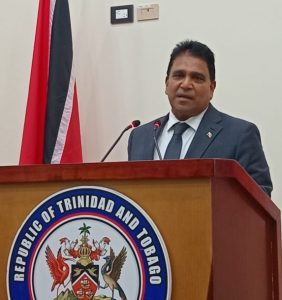
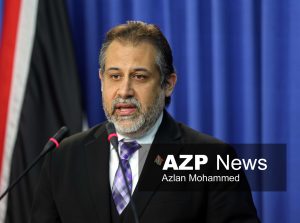
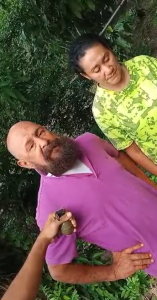
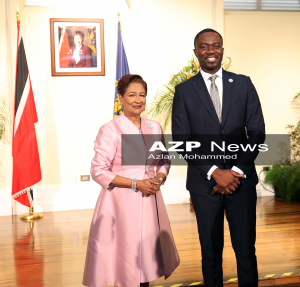

Paul Mohammed
January 7, 2024Panday magnanimous vision for TT was national unity amongst all citizens. The was aptly demonstrated when he became PM. He lifted the ban on the black power activist KWAME TURE that Eric Williams imposed on Mr TURE in 1969. In fact PM Panday Government and by extension TT Citizens covered some medical cost associated with Mr Ture failing health